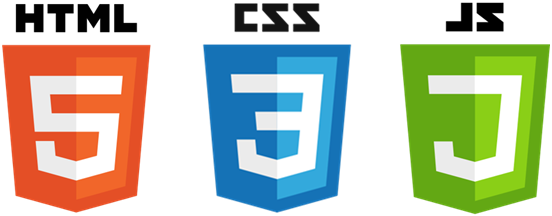Record and include a video for this blog entry.
Recently, I have been hearing some tool vendors' using fear-based tactics about how hard web development is in an attempt to scare you into using their proprietary technologies instead. I might understand this if it was coming from no-code or low-code solutions, but it isn't. It is from companies where they are positioning their own proprietary IDE and software language.
As with many things in life, don’t believe everything you hear.
I'm not going to preach to you that web development isn't hard. Well, not entirely. Basic web development isn't hard at all. Building robust web applications can get pretty complex pretty fast though. And, if not done right, you can really dig yourself a deep hole to get out of. But, I digress, because that is not what these vendors are getting at either.
So, what are they talking about? On one of their sites, they say “Developing new applications is hard work and not everyone can master the job. Many developers struggle with multiple programming languages …” Then they go on to tout that with their tool you can “Build business-grade, transactional Web applications without writing a single line of HTML, JavaScript, or CSS code.”
At first, this may sound very appealing, especially if you do not yet know HTML, JavaScript, or CSS. But, if you dig a little deeper you'll find they are asking you to learn their language instead. Which means using their training and their consultants when you need a little help. I'm feeling claustrophobic just thinking about all that proprietary lock-in.
Oh, and I wonder just how well learning there language will help me in any future career.
The web development languages aren't what's hard
Let's have a closer look at these 3 very scary things they are referring to!

HTML (HyperText Markup Language) is a markup language for your screen layouts, CSS (Cascading Style Sheet) is a definition of styles for styling those screens, and JS (JavaScript) is a scripting language for building the logic of that screen.
Aren’t these the very technologies that a number of high school teenagers and college dropouts used to become the wealthiest people in the world? How hard can they be?

Don’t all languages have those 3 things? And in all languages, aren’t the commands, or code, for them a little different for each. So, they are not really 3 different languages at all. They are just 3 complementary pieces to a single development platform. They are also a very good way of separating those pieces to optimize development reuse and performance-based caching. Also, as development goes, these 3 things are relatively easy to write, are widely accepted, and have a very large eco-system of training, knowledgebases, and available consultants. You can use any number of a plethora of tools available to make developing in those technologies even easier.
Oh, and those proprietary solutions ultimately have to compile into these technologies anyways since they are the only thing the Web Browsers will understand. Again, if we were talking about no-code or low-code website content management systems I would get this argument, but these are tool companies with their own IDEs and languages.
Today’s Polyglot Programmer
So, besides the fact that those 3 things are actually a single complimentary set of coding, most developers don’t actually have problems with multiple languages anyways. In a recent survey from IDC of developers, they found that 88% of developers use more than one language in a year. 18% use more than 5.
By the way, a Polyglot is a person that knows and uses several languages. I had to look that one up too.

Want to really help your developers?
The standard Web development languages themselves are not hard and I recommend staying away from any solution providers that try to scare you into thinking they are. Especially if their solution involves any proprietary technologies of their own.
Rather than getting tools that try to “shield” your developers from these languages, I suggest finding solutions that ease their learning curve and helps them be more productive in them. Read more in my previous blog post, Choosing the right tools to help developers.
